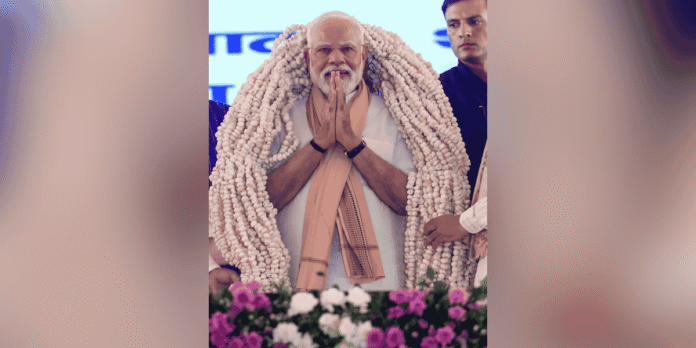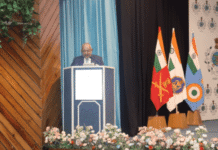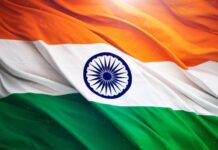Prime Minister Narendra Modi turned 75 today, marking the occasion by launching two major initiatives, the Swasth Nari Sashakt Parivar and the 8th Rashtriya Poshan Maah campaigns, during his visit to Madhya Pradesh. The campaigns are billed as the country’s largest-ever health outreach programmes for women and children.
Born on September 17, 1950, in Mehsana, Gujarat, Modi served as the state’s Chief Minister for three consecutive terms from 2001 to 2014 before becoming Prime Minister. He is currently serving his third term as PM after first assuming office in 2014. True to tradition, Modi did not host any personal celebrations, while the Bharatiya Janata Party (BJP) marked the occasion with its annual Sewa Pakhwara initiative focused on citizen welfare.
Modi is widely admired for his emphasis on innovation, technology-driven governance, and respect for India’s cultural heritage. His long-term vision of a “Viksit Bharat 2047” seeks to make India a global innovation leader. Under his tenure, India has transitioned from being largely a technology consumer to a significant contributor to emerging technologies, with startups and research institutions playing a key role.
Governance reforms under his leadership have leaned heavily on digital solutions and data-driven policymaking, cutting inefficiency and red tape. Initiatives like the Unified Payments Interface (UPI) have transformed India’s digital payments landscape, with UPI transactions surpassing ₹24.03 lakh crore in June 2025.
Modi’s leadership during the COVID-19 pandemic was globally lauded, with the CoWIN platform becoming a model for vaccination drives worldwide and enabling over 950 million vaccinations in India. His government has also pushed aggressively for semiconductor manufacturing, approving ten projects across six states with a total investment of ₹4,600 crore to strengthen India’s position in the global market.
Security has been a cornerstone of Modi’s governance. His tenure saw the elimination of groups like the Indian Mujahideen, a sharp decline in terror attacks, and major infrastructure development in Naxal-hit areas that weakened left-wing extremism. India is expected to be Naxal-free by March 2026.
On the national security front, Modi’s government abrogated Article 370, leading to improved peace and development in Jammu and Kashmir. It also authorized major retaliatory strikes against cross-border terrorism, including the surgical strikes post-Uri, the Balakot air strike after Pulwama, and the more recent Operation Sindoor targeting terror infrastructure in Pakistan and Pakistan-occupied Kashmir.
As Modi enters his 76th year, his tenure continues to shape India’s trajectory through technology adoption, citizen-centric governance, and assertive security policies.





